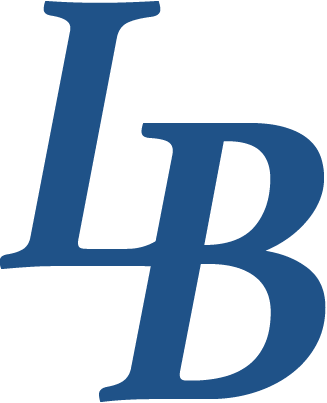Professional Negligence Attorneys in South CarolinaHolding Professionals to High StandardsLewis Babcock is committed to improving the quality of services provided by South Carolina licensed professionals, such as lawyers, accountants, and other professional service providers.
Professional negligence disputes have been an important part of our practice for more than 30 years. We bring claims on behalf of individuals or businesses injured by a professional’s conduct that fell below the generally accepted standard of professional performance. We are dedicated pursuing justice against those who fail to live up to their professional duties. Licensed professionals are held to the standards of performance of their professions. While there are many types of misconduct that may give rise to a claim, most claims against professionals arise from the way they performed or failed to perform the services you paid for. This is referred to as negligence, which is the failure to perform competent professional service, resulting in damage to the client or customer. A claimant will have to show that the professional performed far below the standards for his or her field or made errors that no reasonable member of the profession would make. Lewis Babcock has a long history of resolving professional negligence cases for our clients. Common Types of MisconductLicensed professionals are held to the standards of performance of their professions. While there are many types of misconduct that may give rise to a claim, most claims against professionals arise from the way they performed or fail to perform the services you paid for. This is referred to as negligence, which is the failure to perform competent professional service, resulting in damage to the client or customer. A claimant will have to show that the professional performed far below the standards for his or her field or made errors that no reasonable member of the profession would make. Lewis Babcock has a long history of resolving professional negligence cases for our clients.
Legal MalpracticeLegal malpractice is a complex area of law. In representing clients, lawyers can sometimes fall below the standard of care for the legal profession. This can take place during a lawyer’s representation of a client in a lawsuit, or during a lawyer’s representation of a client in a transactional matter, such as a real estate closing, or drafting a contract or estate planning documents.
In order to pursue a legal malpractice action, an expert must first opine that the lawyer’s conduct fell below the professional standard for the industry. Legal malpractice is often complicated by the existence of multiple layers of litigation, which can also impact how soon you need to bring your claim to comply with the statute of limitations. Attorneys at Lewis Babcock have decades of experience pursuing legal malpractice claims. Accountant / Financial Professional MalpracticeFinancial information is extremely sensitive and confidential. It is one of the most closely guarded stores of information about our personal life and the businesses we own and operate. We entrust financial professionals to handle our confidential information appropriately, manage investments in accordance with our goals and risk profile, and to distribute wealth according to our wishes. We also rely on financial professionals to guide us in complying with state and federal tax laws. When financial professionals fall short of their professional standards, it can cause significant harm. Our attorneys have experience helping to right the wrong caused by financial professional negligence.
Professional Licensing Complaints Before the Office of Disciplinary CounselAttorneys at Lewis Babcock have extensive experience representing lawyers before the South Carolina Office of Disciplinary Counsel. It can be intimidating and anxiety-producing to receive a complaint from South Carolina’s Office of Disciplinary Counsel (“ODC”). Our attorneys have represented lawyers in responding to a wide variety of complaints before the ODC. We guide attorneys through this extremely sensitive and confidential process. Disciplinary matters can have a substantial effect on a lawyer’s practice. If you receive a complaint from the ODC, call our office at (803) 771-8000 to arrange an appointment.
|
Practice Areas |
Legal Malpractice FAQs
MY LAWYER IS NOT WORKING WITH ME, NOT EVEN RETURNING PHONE CALLS. WHAT CAN I DO?
A lawyer not communicating is the most often-cited complaint being made to state bar associations. Sometimes the failure to communicate is not a true indication of the level of time or work an attorney is actually doing on a case, but is symptomatic of poor organizational skills. Send your attorney a note letting him or her know that you have been trying to reach the office and speak with him or her, and would greatly appreciate a return call as well as a written update and specific responses to your questions. The letter creates a paper trail of communication with your attorney. The longer the attorney is unresponsive, especially after sending him or her a letter, the stronger a case for malpractice may be.
What is legal malpractice?
The term malpractice means that a professional has performed services below the expected standard of performance for their industry. Many people have heard the term used in the context of a medical malpractice lawsuit brought against a medical provider. Just like medical providers, lawyers are expected to perform up to a certain level of professional standards. When a lawyer performs below these standards and causes injury to a client, the lawyer committed legal malpractice. Similar to other malpractice lawsuits, an injured client may seek the recovery of damages caused by the attorney’s conduct.
Who can sue an attorney for legal malpractice?
One of the requirements for bringing a legal malpractice lawsuit is the existence of an attorney-client relationship. A written fee agreement identifying the client and setting forth the scope of representation is often the best evidence of an attorney-client relationship. However, because written fee agreements are generally only required by the South Carolina Rules of Professional Conduct where the lawyer’s fee is based on contingency, it is not unusual for there to be no written fee agreement between a client and their lawyer. Where there is no written fee agreement, facts about how the lawyer became involved, the substance of communications with the lawyer, what persons interacted with the lawyer, what actions the lawyer took on the client’s behalf, and who paid the lawyer’s fees, may all factor into this analysis.
This question often becomes more complicated in the context of multi-party transactions and for closely-held businesses where the distinction between the legal entity and individual owners is often blurred. Our firm has experience guiding clients through this analysis.
This question often becomes more complicated in the context of multi-party transactions and for closely-held businesses where the distinction between the legal entity and individual owners is often blurred. Our firm has experience guiding clients through this analysis.
How do I know if I might have a malpractice case against my attorney?
Every legal malpractice case is unique and there is no one-size-fits-all answer to this question. In South Carolina, when filing a legal malpractice lawsuit, the plaintiff-client must include an affidavit from a legal industry expert expressing the opinion that the lawyer’s conduct fell below the standard for the legal industry. Prior to reaching the point of hiring an expert, there are questions common to every legal malpractice action that can help you evaluate your case and prepare you to speak with an attorney.
What actions did my attorney take, or fail take, that were wrong?
Begin to articulate what actions your attorney took, or failed to take, that you believe were wrong. Often, a client may have only a general sense of something amiss and the answer to this question will formulate as you consult with your attorney and legal industry expert. The more specific you can be at the outset, the more accurately your case can be evaluated.
What damages did I suffer as a result of my attorney’s conduct?
One prerequisite for a successful legal malpractice is damages. What damage or loss did you suffer as a result of your attorney’s conduct? Did you incur certain unexpected costs? Did you miss out on a business opportunity? Did you make a decision based on your attorney’s advice that resulted in financial harm to you or your business? Did you lose a lawsuit that you otherwise should have won? Are you able to quantify your losses at this point?
How did my attorney’s wrongful actions, or failures to act, lead to my injury?
In every legal malpractice action, the plaintiff-client must be able to demonstrate a causal connection between the attorney’s wrongful conduct and the injuries suffered by the client. In other words, the attorney’s conduct must be the legal cause of the injury. Sometimes this question can be thought of in terms of “But for my attorney doing X, this bad thing would not have happened because of reasons 1, 2, and 3.” Or, “If my attorney had done Y, this bad thing would not have happened because of reasons 1, 2, and 3.”
Causation can also be thought of in terms of proximity, or closeness. How closely related to my injuries was the attorney’s wrongful conduct. For example, if your attorney negligently omitted an early-termination fee in your tenant’s lease and your tenant vacates the premises without cause, the attorney’s omission may be closely related to your inability to collect a lease breakage fee from the tenant. However, in the same scenario, if your tenant vacates the premises because you failed to provide sufficient parking as required in the lease, then your inability to collect a lease breakage fee may not be as directly related to your attorney’s omission because of your own failure to provide parking.
Causation is typically one of the more difficult aspects of a legal malpractice case to evaluate. We are here to help.
What actions did my attorney take, or fail take, that were wrong?
Begin to articulate what actions your attorney took, or failed to take, that you believe were wrong. Often, a client may have only a general sense of something amiss and the answer to this question will formulate as you consult with your attorney and legal industry expert. The more specific you can be at the outset, the more accurately your case can be evaluated.
What damages did I suffer as a result of my attorney’s conduct?
One prerequisite for a successful legal malpractice is damages. What damage or loss did you suffer as a result of your attorney’s conduct? Did you incur certain unexpected costs? Did you miss out on a business opportunity? Did you make a decision based on your attorney’s advice that resulted in financial harm to you or your business? Did you lose a lawsuit that you otherwise should have won? Are you able to quantify your losses at this point?
How did my attorney’s wrongful actions, or failures to act, lead to my injury?
In every legal malpractice action, the plaintiff-client must be able to demonstrate a causal connection between the attorney’s wrongful conduct and the injuries suffered by the client. In other words, the attorney’s conduct must be the legal cause of the injury. Sometimes this question can be thought of in terms of “But for my attorney doing X, this bad thing would not have happened because of reasons 1, 2, and 3.” Or, “If my attorney had done Y, this bad thing would not have happened because of reasons 1, 2, and 3.”
Causation can also be thought of in terms of proximity, or closeness. How closely related to my injuries was the attorney’s wrongful conduct. For example, if your attorney negligently omitted an early-termination fee in your tenant’s lease and your tenant vacates the premises without cause, the attorney’s omission may be closely related to your inability to collect a lease breakage fee from the tenant. However, in the same scenario, if your tenant vacates the premises because you failed to provide sufficient parking as required in the lease, then your inability to collect a lease breakage fee may not be as directly related to your attorney’s omission because of your own failure to provide parking.
Causation is typically one of the more difficult aspects of a legal malpractice case to evaluate. We are here to help.
My lawsuit is ongoing, does this affect when I can bring a malpractice case against my attorney?
Legal malpractice cases often arise from attorney conduct in a prior litigation. When that litigation remains ongoing, in a trial court or on appeal, it may be too early to pursue a legal malpractice claim. Generally, a claim for legal malpractice arising out of an underlying lawsuit that is on appeal must wait for the conclusion of the appeal. In certain circumstances, it may make sense to obtain an agreement placing the statute of limitations on hold (tolling agreement) prior to the conclusion of your underlying case.
Every client’s case is different, so it is important to consult with an attorney as soon as you believe you might have a claim for legal malpractice.
Every client’s case is different, so it is important to consult with an attorney as soon as you believe you might have a claim for legal malpractice.
How long do I have to bring my claim for legal malpractice?
South Carolina has a three-year statute of limitations for legal malpractice cases. However, South Carolina also recognizes the discovery rule, under which the statute of limitations does not begin until a client knows or by the exercise of reasonable diligence should know that they had a claim for legal malpractice.
Every client’s case is different, so it is important to consult with an attorney as soon as you believe you might have a claim for legal malpractice.
Every client’s case is different, so it is important to consult with an attorney as soon as you believe you might have a claim for legal malpractice.
If my attorney breached the rules of professional conduct, does that mean they committed legal malpractice?
Not necessarily. While the South Carolina Rules of Professional Conduct govern the legal profession and can result in disciplinary actions, a breach of professional conduct does not necessarily mean that an attorney has committed malpractice. However, the Rules of Professional Conduct are relevant to establishing the standard of care and attorney’s legal duty to a client.
What damages can I recover in a malpractice action against my attorney?
Recoverable damages are those caused by the attorney’s negligence. Clients can recover actual damages and, under certain circumstances, punitive damages. Damages for emotional distress or mental anguish are normally not recoverable. In the case of errors made by an attorney in an underlying litigation, damages may equate to what would have been due to the plaintiff-client had the underlying litigation been successful. Where an attorney made errors in drafting documents, damages may be established through expert testimony explaining how the errors financially impacted the client. In a conflict of interest case, it may be appropriate to return the fees paid by the client to the attorney, known as disgorgement.
Can a beneficiary bring a legal malpractice action against the attorney who drafted the will?
In the will/estate planning context, beneficiaries are sometimes permitted to bring lawsuits against the attorney that drafted the will or estate planning documents even though there were not the client. This will depend on the facts of each particular case.
I believe my attorney overcharged me for their services, what can I do?
The South Carolina Bar has established a Fee Disputes Board to resolve fee disputes between clients and attorneys. Information about this process can be located on the South Carolina Bar’s website. The fee dispute process is designed so that clients can bring their claim on their own and do not need to hire another attorney. There is a cap on the amount of legal fees that can be recovered through the fee dispute process. In certain circumstances, it may be advantageous to hire an attorney to manage your fee dispute process. Contact us to learn more about how we can help.
I’ve been convicted of a criminal offense or pled guilty, can I sue my attorney?
In South Carolina, the general rule is that innocence is required to succeed in a legal malpractice action arising out of a criminal conviction. A no contest plea is a bar to a legal malpractice action.
Contact Lewis Babcock
Disciplinary matters can have a substantial effect on a lawyers’ practice. If you receive a complaint from the ODC call our offices at (803) 771-8000 to arrange an appointment.







